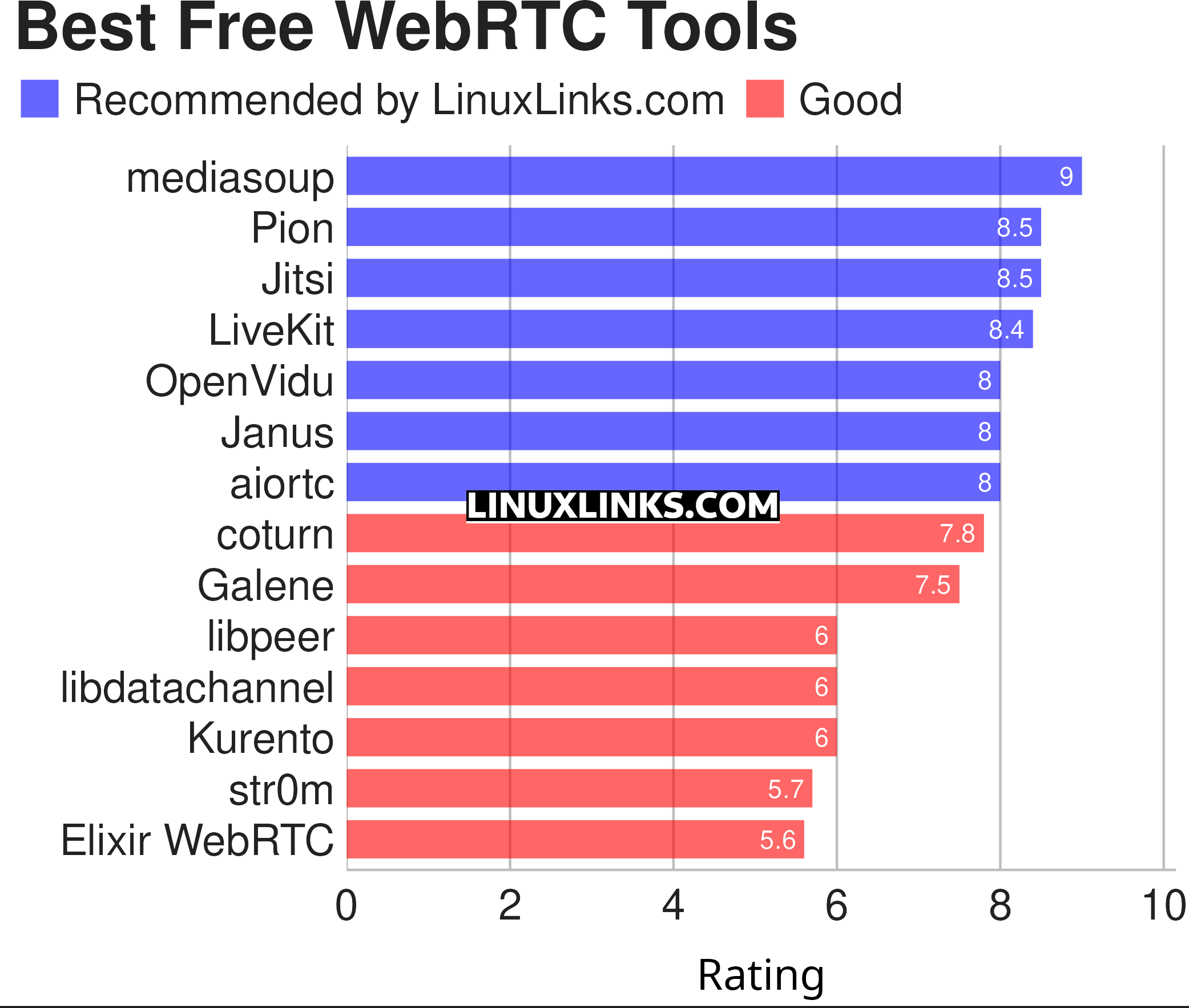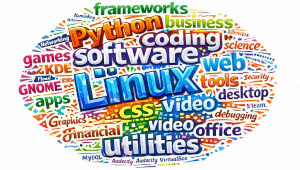WebRTC is real-time communication for the web, enabling video, voice, and data transfer between peers using an open standard.
It allows audio and video communication and streaming to work inside web pages by allowing direct peer-to-peer communication, eliminating the need to install plugins or download native apps.
ICE, STUN and TURN are the NAT traversal techniques used to connect to remote peer.
WebRTC supports a diverse set of use cases.
- Multiple tracks of bi-directional audio and video.
- Media negotiation, codecs and media events like adding and removing tracks.
- P2P connectivity with optimal path discovery, Client/Server can be built as well.
- Binary and text communication, lossy and unordered data with flow control APIs.
- Mandatory encryption, secure by default and requires no developer configuration.
We showcase open source tools that use WebRTC.
Here’s our verdict captured in a legendary LinuxLinks-style ratings chart. Only free and open source software is eligible for inclusion.

Click the links in the table below to learn more about each tool.
| WebRTC Tools | |
|---|---|
| mediasoup | Server-side WebRTC library, specifically a Selective Forwarding Unit (SFU |
| Pion | Modern stack for web real-time communication |
| Jitsi | Innovative voice and video conferencing |
| LiveKit | End-to-end stack for WebRTC |
| OpenVidu | Platform to develop WebRTC real-time applications |
| Janus | Gneral purpose WebRTC server |
| aiortc | Library for WebRTC and ORTC |
| coturn | Implementation of TURN and STUN Server |
| Galene | Easy to deploy videoconference server |
| libpeer | Portable WebRTC library for IoT/embedded devices |
| libdatachannel | WebRTC network library |
| Kurento | WebRTC media server |
| str0m | Sans I/O WebRTC implementation |
| Elixir WebRTC | Elixir implementation of the W3C WebRTC API |
 Read our complete collection of recommended free and open source software. Our curated compilation covers all categories of software. Read our complete collection of recommended free and open source software. Our curated compilation covers all categories of software. Spotted a useful open source Linux program not covered on our site? Please let us know by completing this form. The software collection forms part of our series of informative articles for Linux enthusiasts. There are hundreds of in-depth reviews, open source alternatives to proprietary software from large corporations like Google, Microsoft, Apple, Adobe, IBM, Cisco, Oracle, and Autodesk. There are also fun things to try, hardware, free programming books and tutorials, and much more. |

